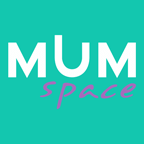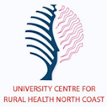
In 1985 Adrian’s wife drowned their baby daughter in the bath because she thought they were the devil. Her GP and the baby health nurse had told Adrian and Sally that Sally’s problem was simply the “baby blues” and it would pass – she would be better when she could get a bit more sleep. Sally’s mental health condition deteriorated rapidly and her psychosis was not evident to Adrian until it was too late. This baby’s death was all the more tragic because it was possibly avoidable.
What are the “baby blues”?
“Baby blues” affect about 80% of women in the first few weeks after childbirth and tend to last about seven to ten days. The blues can be marked by rapid mood swings, irritability and feeling overwhelmed and exhausted. It’s a normal response to the huge changes occurring in mothers’ bodies and their lives. If the “baby blues” lasts more than 2 weeks a diagnosis of depression definitely needs to be considered.
Mental health in the perinatal period
Perinatal depression (“perinatal” because it can occur both before and after the baby is born) affects one in five mothers and one in ten fathers and can range from mild to extremely severe and life threatening.
Post-natal psychosis, as experienced by Adrian’s wife, is very rare – it only occurs in 1-2 women per hundred thousand births, mostly within the first few postnatal weeks. It has a rapid onset and, whilst it is sometimes obvious, it is also often quite hard to work out what is going on.
There are other mental health conditions too that first present in the perinatal period or are exacerbated by childbirth.
- One in four women who experience trauma during childbirth develop PTSD (Post Traumatic Stress Disorder) .
- 5% of women meet criteria for eating disorders during pregnancy and 13% do so in the postnatal period.
- 30% of women experience some symptoms that resemble OCD.
- Perinatal anxiety is common.
We need to be on guard for mental health problems during pregnancy and during the postnatal year.
What makes some women vulnerable to perinatal depression?
A study of Australian women published in 2018 showed that women were more likely to experience post-natal depression if they had:
- lack of partner support,
- history of intimate partner violence,
- being from the CALD population
- low socioeconomic status
- antenatal depression
All that makes a lot of sense.
Face-to-face and online care
Women (and men) with perinatal mental health problems need special care because their babies are so vulnerable. They generally need face to face care. Sally certainly needed intensive face to face and probably inpatient care. Those who are not as unwell as Sally may also benefit from the many online resources available now that have been especially tailored for the perinatal period. These resources can be used in conjunction with good face to face care.
Finding online resources – Mumspace

There’s an online portal called Mumspace which will lead you to some of the Australian evidence-based resources for perinatal mental health and well being. These resources are best used in collaboration with a health care professional but some can also be stand-alone self-care options. Your patients and clients might like:
- Mind Mum an app designed to help with the ups and downs of the perinatal period or
- Baby steps which is addressed to new dads as well as mums and
- Monash University have a program called “What were we Thinking!” which includes a website with a professionally moderated blog and a 26 week program that follows the baby’s development as well as the changes in couples lives as their baby grows. This last is a response to research that shows that there is a consistent association between depression after childbirth and quality of relationship with the intimate partner.
There are also several online CBT treatment programs for ante and post-natal anxiety and depression that practitioners may want to use to augment therapy. These are MUM2B Mood Booster and Mum Mood Booster which come from the Parent-Infant Research Institute (PIRI) in Melbourne and two similar programs from THISWAYUP





